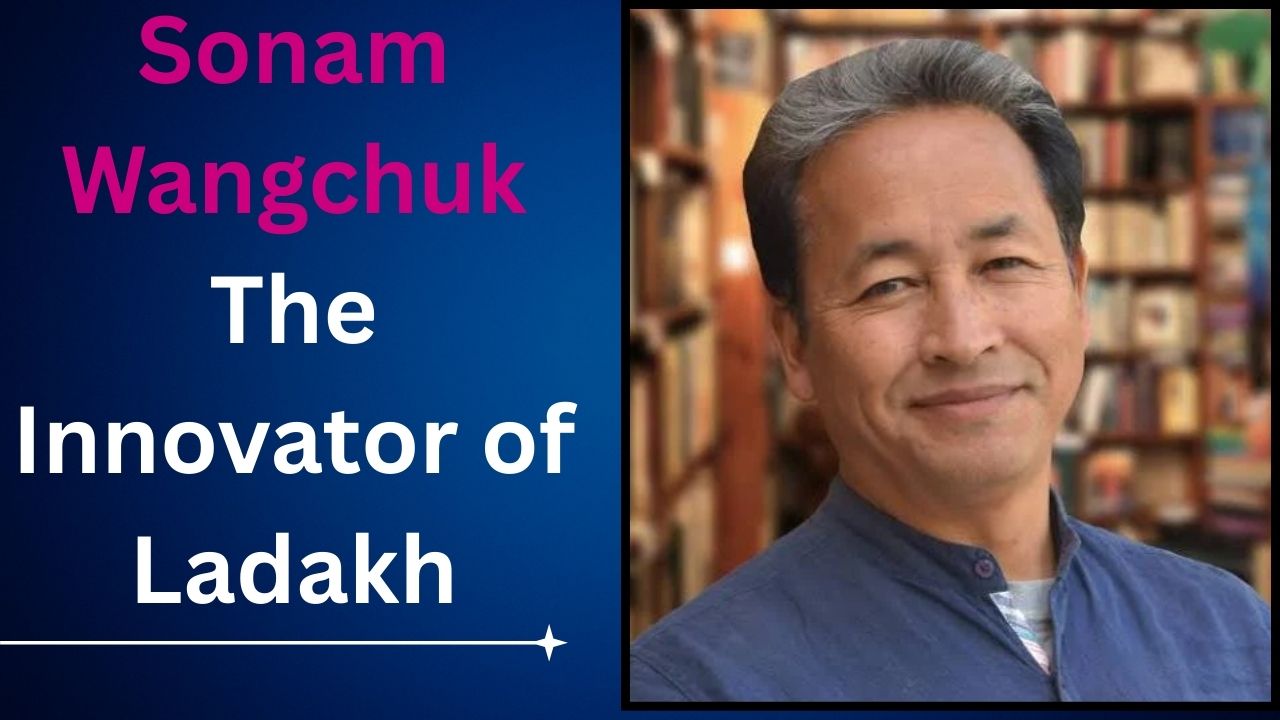Sonam Wangchuk,– Ladakh’s innovator & education reformer. Learn about SECMOL, Ice Stupa, climate activism & his vision for sustainable living.
Introduction
Sonam Wangchuk is one of India’s most inspiring engineers, innovators, and education reformers. Born in 1966 in the remote region of Ladakh, he has dedicated his life to solving real-life problems faced by people in the Himalayas. Wangchuk is widely recognized for his invention of the Ice Stupa artificial glacier, his work in sustainable living, and for inspiring the world with his philosophy of contextual and practical education. His contribution has not only changed Ladakh but has also become a guiding light for climate change solutions globally.
For readers interested in other inspirational leaders and government programs that focus on innovation and sustainability, you can also read our detailed guide on PM Svanidhi Loan Online Apply 2025 on our website.
Early Life and Education
Sonam Wangchuk was born in a small village in Ladakh, where access to modern education and facilities was very limited. His childhood was shaped by the challenges of living in a harsh environment, where winters are extremely cold and resources are scarce. Despite these hurdles, Wangchuk’s curiosity and creativity led him to pursue engineering.
He completed his mechanical engineering degree from the National Institute of Technology (NIT) Srinagar in 1987. Later, he also studied architecture at the École de Architecture in Grenoble, France, which further strengthened his vision of sustainable living.
The Founding of SECMOL
In 1988, Sonam Wangchuk co-founded SECMOL (Students’ Educational and Cultural Movement of Ladakh). The aim of this movement was to reform the education system in Ladakh, which was largely disconnected from the local culture, environment, and real-life needs of students.
SECMOL focuses on:
- Practical learning instead of rote memorization.
- Teaching in a way that matches local contexts, such as cold desert farming and renewable energy.
- Empowering students who failed in the conventional school system to become confident and skilled individuals.
This initiative turned many so-called “failures” into successful entrepreneurs, farmers, and leaders in Ladakh.
– To know more about SECMOL, you can check the official SECMOL website.
Ice Stupa – A Climate Solution
One of Sonam Wangchuk’s most celebrated innovations is the Ice Stupa artificial glacier project. Ladakh faces severe water shortages in summer because glaciers melt too late in the year, whereas farmers need water in early spring. To solve this, Wangchuk and his team developed an ingenious method:
- In winter, water is piped from higher altitudes.
- It is sprayed in the air, where it freezes in the shape of a cone.
- This cone, or “stupa,” stores huge amounts of ice that melt slowly during spring, providing much-needed water for farming.
The Ice Stupa project has received global attention as a low-cost, sustainable solution to water scarcity in cold desert regions.
Educational Philosophy and Innovations
Wangchuk believes that education should not be about memorizing textbooks but about solving real-life problems. His philosophy emphasizes:
- Learning by doing.
- Blending traditional wisdom with modern science.
- Teaching skills relevant to local needs, such as solar architecture, organic farming, and eco-tourism.
Through SECMOL, he introduced solar-powered buildings that remain warm in harsh winters without using fossil fuels. These buildings not only save energy but also teach students about sustainable living.
Awards and Recognition
Sonam Wangchuk’s groundbreaking work has been recognized nationally and internationally. Some of his prestigious awards include:
- Rolex Award for Enterprise (2016) for the Ice Stupa project.
- Ramon Magsaysay Award (2018) often considered Asia’s Nobel Prize, for community-driven educational reform.
- Global Award for Sustainable Architecture (2017).
- Honored by several Indian institutions for his contribution to education and environment.
These awards are not just personal achievements but a recognition of the innovative spirit of Ladakh.
Sonam Wangchuk and Climate Activism
Apart from his inventions, Wangchuk is also a strong climate activist. He has constantly raised awareness about the melting glaciers of Ladakh and the urgent need to adopt sustainable lifestyles. He emphasizes that the Himalayas are the “third pole” of the Earth, storing vast amounts of freshwater, and their rapid melting is a warning to humanity.
In 2023, he went on a climate fast in Ladakh to highlight the issue of environmental degradation caused by unchecked development. His activism has inspired many young Indians to take up eco-friendly practices and support renewable energy.
Influence on Pop Culture
Interestingly, Sonam Wangchuk is often believed to be the real-life inspiration behind Aamir Khan’s character “Phunsukh Wangdu” in the Bollywood film 3 Idiots. While the filmmakers have not officially confirmed this, the similarities between the character and Wangchuk’s life are striking — both focus on innovation, practical education, and challenging outdated systems.
This connection brought Wangchuk’s ideas into mainstream discussion and inspired millions to think differently about education.
Legacy and Vision for the Future
Sonam Wangchuk’s legacy lies not only in his inventions but also in the way he has empowered communities. His vision is to make Ladakh a model of sustainable development where:
- Energy comes from renewable sources.
- Education is locally relevant and globally aware.
- Water scarcity is tackled with innovative solutions.
- Tourism is eco-friendly and beneficial for locals.
Through initiatives like the Himalayan Institute of Alternatives, Ladakh (HIAL), Wangchuk is creating a university dedicated to solving mountain problems through research, innovation, and entrepreneurship.
Conclusion
Sonam Wangchuk is more than just an engineer; he is a visionary, a reformer, and a climate warrior. From building Ice Stupas that save water to reforming education in Ladakh, his journey proves that innovation rooted in local culture can bring global solutions. As the world faces the challenges of climate change, the teachings and practices of Wangchuk serve as a beacon of hope and sustainability.

